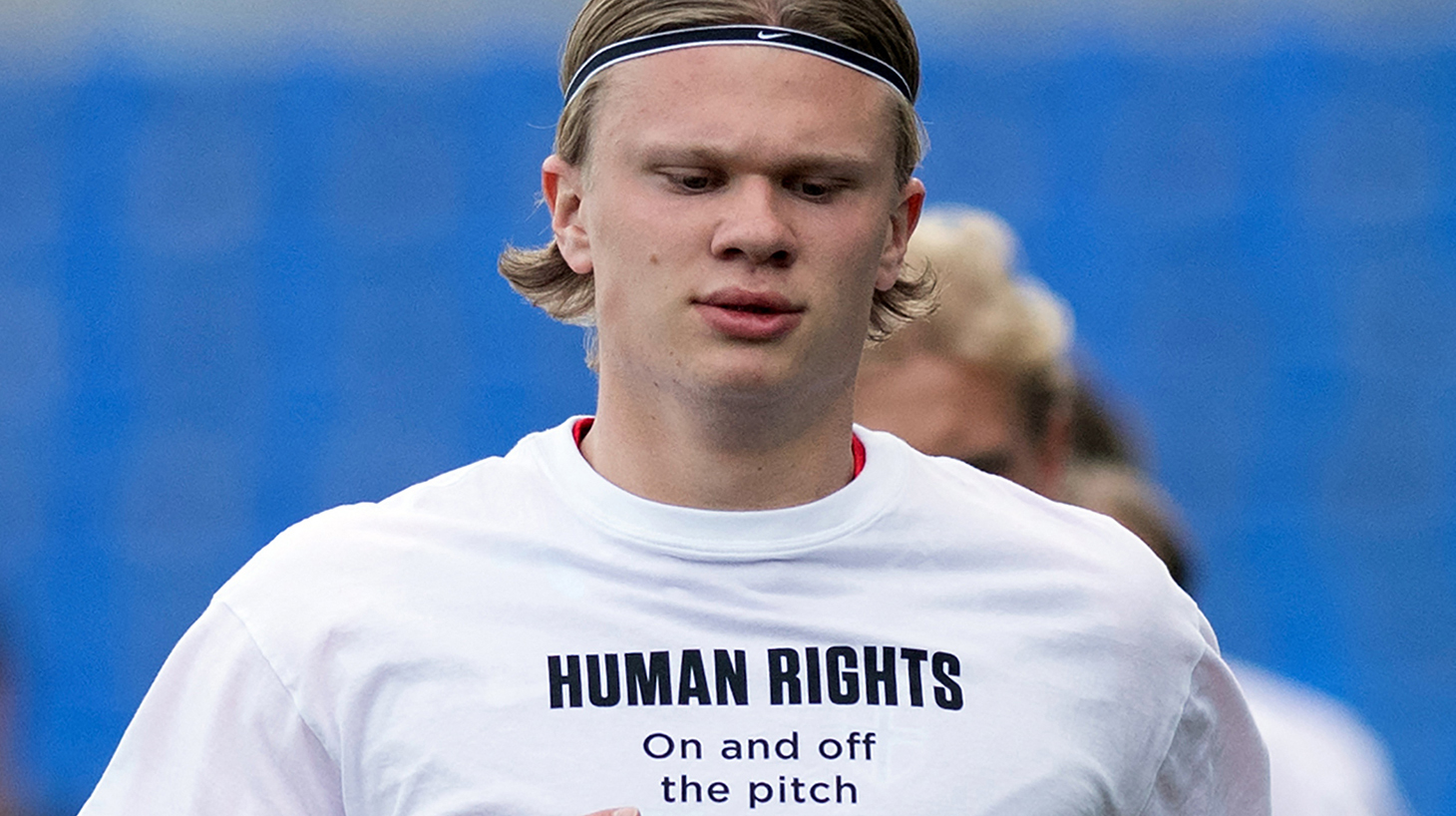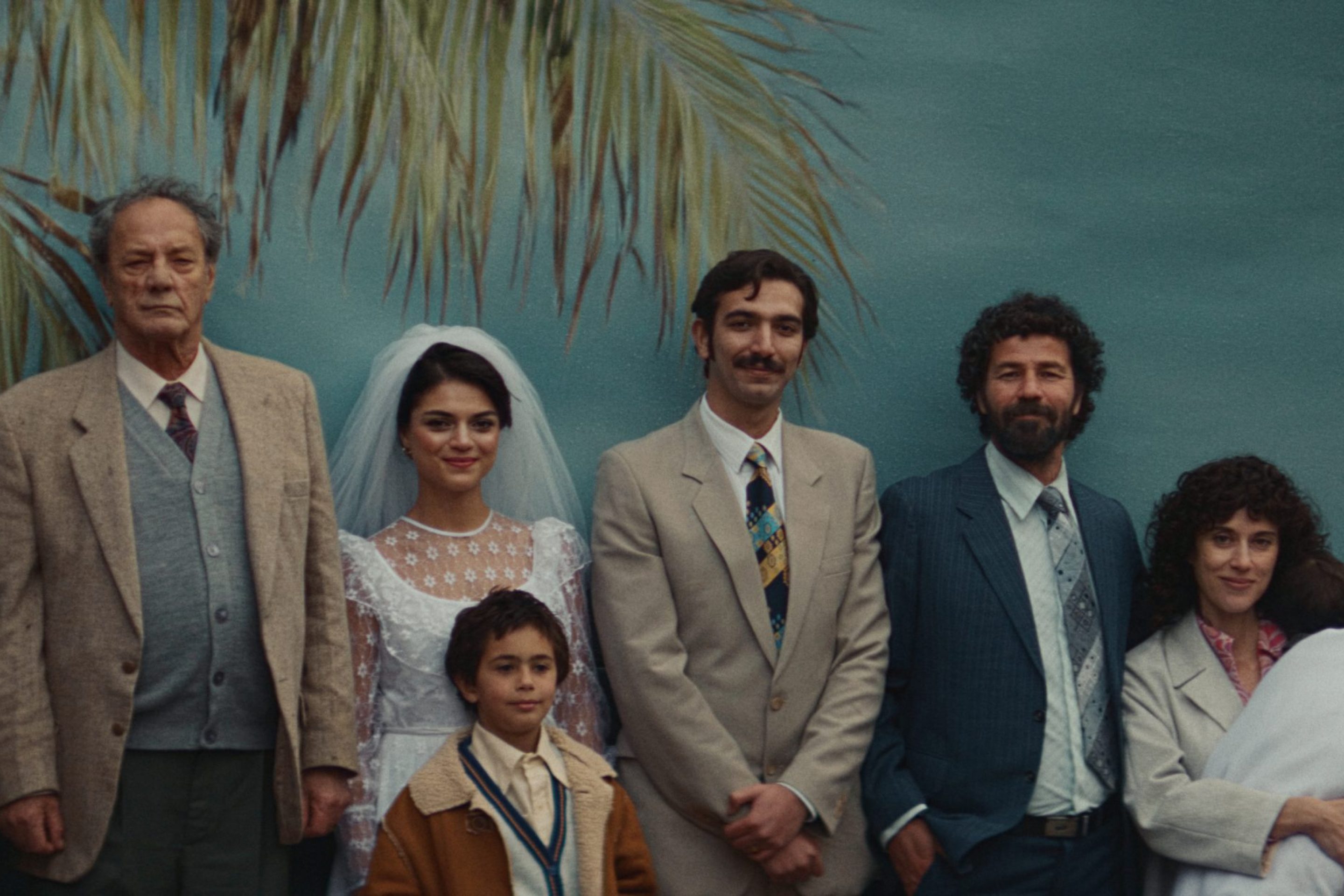As UEFA qualifying for the 2022 World Cup in Qatar kicked off last week, players from Norway and, later, Germany and the Netherlands donned t-shirts prior to their matches calling for awareness of human rights abuses perpetrated by Qatar, which will be hosting the world's biggest soccer tournament in 2022. Norwegian players led the charge with shirts that said "Human rights on and off the pitch" ahead of the team's match against Gibraltar on Wednesday, while Germany spelled out "human rights" on their shirts before facing Iceland on Thursday. Norway also followed that up with the same shirts, only additionally spotlighting Germany's commitment to the cause, before losing to Turkey on Saturday.
Taken on its own, this form of player protest is a net positive. Raising awareness, as a goal in and of itself, is never really a bad thing. The reality, though, is that these shirts won't do much of anything. The human rights abuses that have been taking place as Qatar readies itself for the World Cup have been widely reported and condemned over the last decade. What the Norwegian and German players are doing is bringing that conversation back to the forefront, sure, but it wasn't hidden particularly well.
Norwegian clubs have tried to get momentum started on boycotting the tournament as recently as earlier this month. If some of the top nations in the world promised to boycott the tournament, then FIFA would be stuck between moving the tournament or hosting it without some of its most popular brands. That's what these countries are to the world soccer governing body, after all: brands, used to promote its tournaments and, in turn, fatten its coffers. Losing the biggest and best ambassadors for the game—imagine a World Cup without Germany!—would perhaps drive FIFA to enact some change.
The calls for a boycott are coming too late, though, and that fact hasn't escaped the players. German defender and Bayern Munich star Joshua Kimmich said as much on Sunday, ahead of his country's qualifying match against Romania. "I think we’re 10 years too late to boycott the World Cup. It wasn’t allocated this year, but a couple of years ago. One should have thought about boycotting back then." He's right, though perhaps even that is too optimistic. After all, the players who could have promised to boycott 10 years ago are largely not the same players that will be playing next winter.
It still comes back to the countries, and their respective federations, to actually do something meaningful. It's not clear that these federations care all that much, though; Kimmich's own German federation is vocally opposed to a boycott, though it does support the players' right to protest. Hilariously, FIFA said the same thing when it announced that it would not punish the Norwegian players for the shirts. These protests are, if not FIFA-endorsed, then FIFA-allowed, and history has taught that protests allowed by the targets of said protests are never all that effective.
The time to do something about the human rights abuses in Qatar has long passed. If anything, the start of qualifying in the world's biggest soccer confederation is just another reminder that the momentum towards the tournament, and the revenue it promises, is unstoppable. Three of the bigger countries in Europe have seen players stand in direct opposition to what they are playing for, and it doesn't matter. What these protests do is give cover to the people in power, who purposefully allow them to happen so that it seems as if the sport is socially conscious while still barreling towards Qatar.






